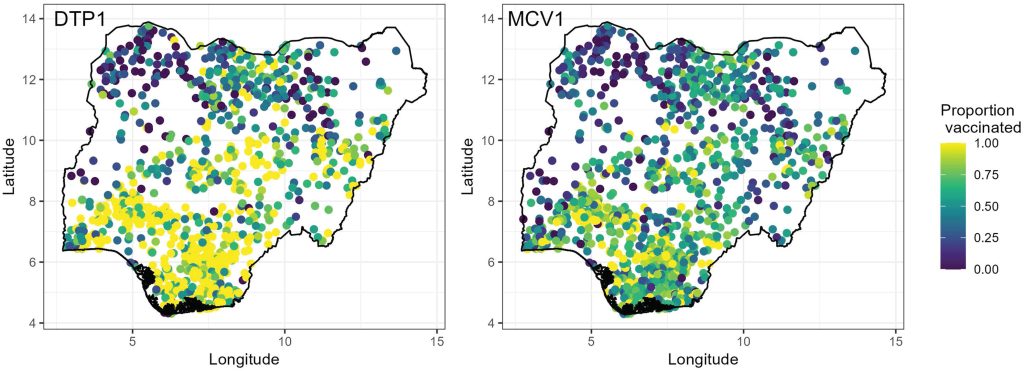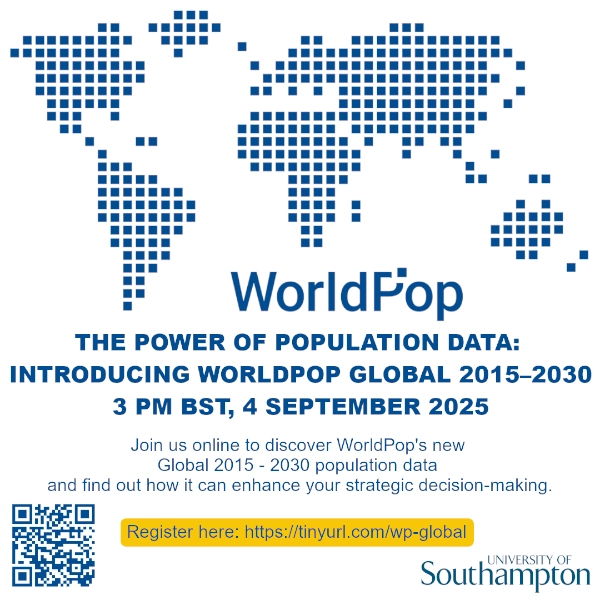How do we find out where vaccines aren’t reaching people – especially in places with limited data?
A new study led by Dr Edson Utazi at WorldPop, in collaboration with the World Health Organization and Nnamdi Azikiwe University, has evaluated how different statistical and machine learning methods perform in mapping vaccination coverage at high resolution. The research focuses on improving how we identify areas with low vaccine uptake, particularly in low- and middle-income countries where health data is often limited or outdated.
The study, titled Geostatistical and machine learning approaches for high-resolution mapping of vaccination coverage, used data from Nigeria and Côte d’Ivoire to test seven modelling approaches. These included geostatistical models, several machine learning techniques, and a hybrid method combining both. The findings showed that while five of the methods performed well, geostatistical approaches provided the most reliable and accurate estimates. Some machine learning models, notably artificial neural networks and boosted regression trees, were found to over-smooth the data, potentially masking gaps in coverage and leading to less effective targeting of health interventions.
High-resolution vaccination maps are a crucial tool for identifying underserved populations, informing local planning, and ensuring resources reach the communities that need them most. Dr Utazi’s study highlights the importance of selecting the right modelling approach, as differences between methods can significantly affect which areas are prioritized for vaccination efforts. Misidentifying these areas can lead to missed opportunities to protect vulnerable populations and reduce the overall effectiveness of public health campaigns.
This research offers practical guidance for governments, health agencies, and researchers working to improve vaccine delivery and supports broader efforts in precision public health, where targeted data-driven strategies are essential for closing coverage gaps and saving lives.
Learn more
Geostatistical and machine learning approaches for high-resolution mapping of vaccination coverage (Spatial and Spatio-temporal Epidemiology)
Register for The Power of Population Data: Introducing WorldPop Global 2015–2030 (Eventbrite)




